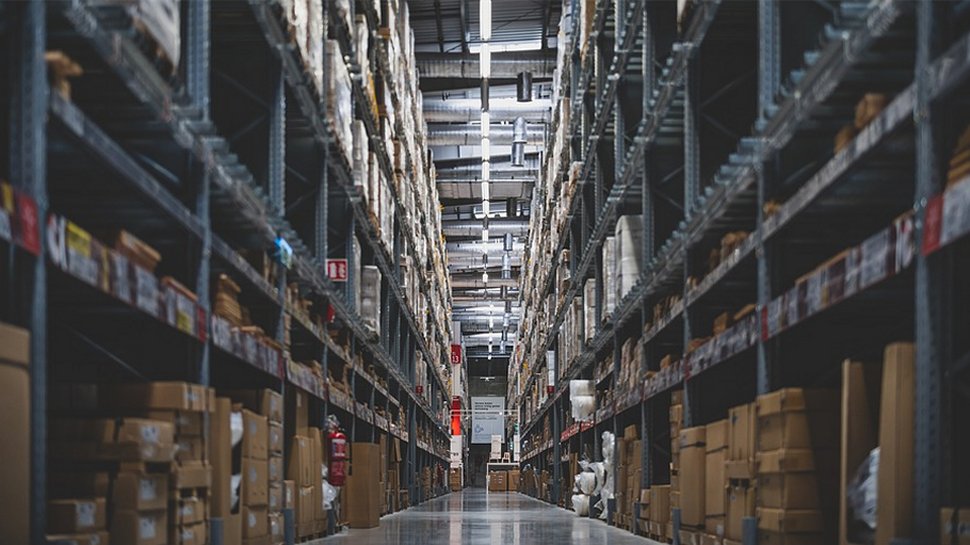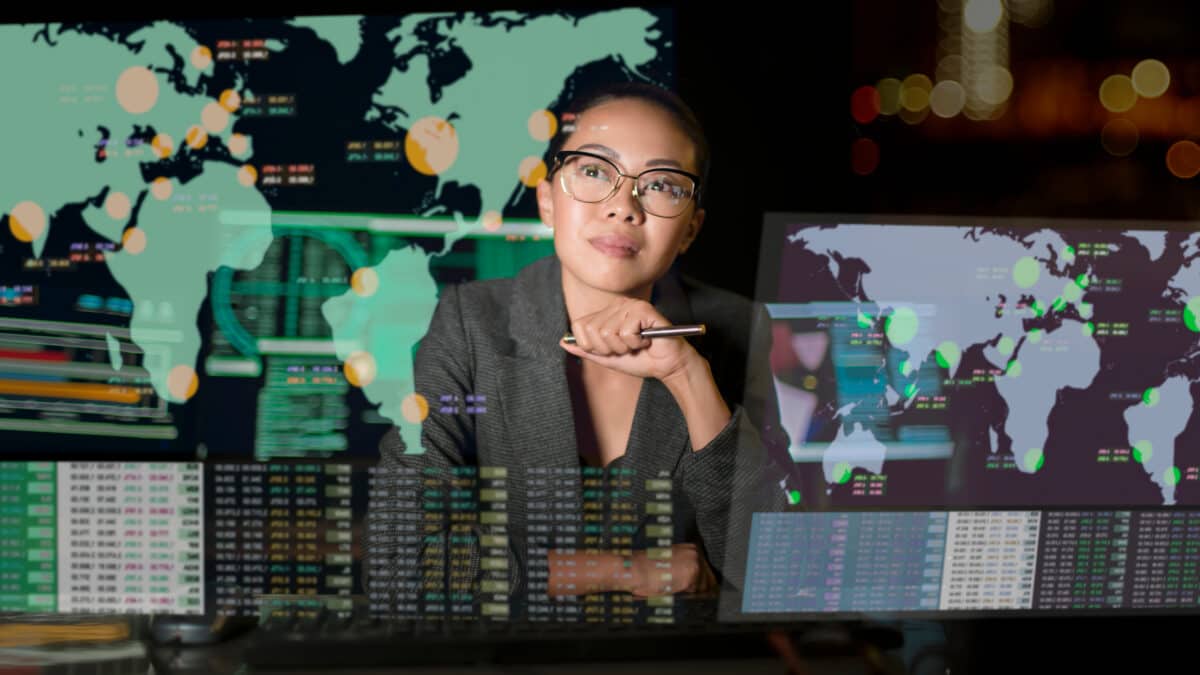Sustainability Week: The complex road to greener supply chains

Skip to main content Tech Radar Pro Tech Radar Gaming Tech Radar Pro TechRadar the business technology experts Search TechRadar View Profile België (Nederlands) Deutschland North America US (English) Australasia New Zealand Expert Insights Website builders Web hosting Best web hosting Best website builder Best office chairs Expert Insights Sustainability Week: The complex road to greener supply chains TechRadar Pro 21 April 2025 Businesses are prioritizing supply chain sustainability more than ever before When you purchase through links on our site, we may earn an affiliate commission. Here’s how it works. (Image credit: Pixabay) Global businesses are prioritizing sustainability in their supply chains more than ever before. Across sectors, we’re increasingly seeing businesses develop sustainable procurement policies, putting carbon reduction strategies and environmental commitments to the top of their priorities list when evaluating new supplier engagements. According to a 2023 survey from Stanford Business School, over half (51%) of global business currently have sustainable procurement policies in place to strengthen their supply chains. The need to reduce scope 3 emissions has brought procurement to the forefront of business strategy today, and driven increasing collaboration with sustainability and other departments. But what internal, and external, pressures have sparked this need? And what can businesses do today to decarbonize their supply chains and forge a greener future? You may like The role of automation in achieving sustainability goals Compliance to competitive edge: how sustainability drives business value Social Links Navigation Group ESG Director, Crown Worldwide Group. Strict regulatory landscape The regulatory landscape for businesses surrounding sustainability is evolving, and becoming stricter, which has created mounting pressures for organizations to manage and report on their carbon footprints. In Europe, for example, the EU’s Corporate Sustainability Reporting Directive (CSRD) and Corporate Sustainability Due Diligence Directive (CSDDD), despite recent European Commission's Omnibus Package’s update, continue to require large and listed companies to disclose the environmental impact of their activity. Over in North America, the Securities and Exchange Commission (SEC)’s disclosure rules took effect in March 2024, requiring registered organizations to disclose comprehensive climate impact information in annual reports and registration statements. And in Asia, similar regulatory push is also on the rise with new ESG reporting standards being introduced. China, for example, is aiming for mandatory ESG reporting by 2026, aligned with the International Sustainability Standards Board. Increasing regulation and government enforced net zero targets, of course, creates significant external pressure to act on decarbonization supply chains. However, there are some commercial drivers, too. Today, buyers are on the lookout for their own sustainable suppliers, and companies with sustainable policies and practices will not only comply with regulations but will also gain a competitive edge in the market. In fact, research from the Greenly Institute claims that companies with sustainable procurement can gain anywhere between a 15 to 30% increase in brand value. Not a level playing field Despite knowing that decarbonization is a must, certain industries face more challenges in achieving this. Companies in the shipping sector, for example, have had to reroute vessels due to various geopolitical conflicts, which has increased carbon-intensive journeys. Major container shipping lines have been forced to divert away from the Red Sea and Suez Canal, around the Cape of Good Hope, due to Houthi attacks on commercial ships. This diversion alone adds around 3,000 nautical miles and 10 days to the journey, which significantly hikes up carbon emissions. High energy, fuel and labor costs have made it difficult for road haulage operators to get by financially, let alone invest in cleaner tech. And even for those transport and logistics operators that can afford to invest in decarbonizing their fleets, additional challenges are met further down the line when they encounter limited supplies of electric charging points. Tech, innovation, and thinking outside the box can support in overcoming some of these challenges. For instance, fleet tracking software can help to optimize routes and reduce vehicle emissions, also aiding in guiding investment decisions by mapping out which routes are suited to electrical fleets, further reducing emissions. Data can also be used in many other ways to assess the state of your current carbon footprint, informing strategies for decarbonization. Carbon accounting platforms, for example, can enable businesses to calculate a baseline for their annual carbon footprint, helping to strategically reduce emissions and set net-zero targets across operations. Action needed from all sides Despite all of this, the overall pace of decarbonization is not yet sufficient to meet current climate targets around the world. Companies need to act now, wherever they can, in tackling major emission sources, such as vehicle and transport emissions. They should also embrace sustainable initiatives such as the circular economy. Returning products for repair, refurbishment, reuse, or recycling – rather than just instantly replacing or disposing of them irresponsibly – can significantly reduce embodied carbon, diverting tons of otherwise valuable materials from ending up in landfills. A long-term view is essential here, but decarbonization is a complex process, and not everything is in the hands of businesses. Government investment in areas such as green energy, electric vehicle (EV) charging infrastructure, and recycling facilities, all have a part to play. For decarbonization to gain the right momentum, greater alignment between legislation, policy, and private investment is needed for a just transition. Strategy for sustainable supply chains When producing a decarbonization strategy, start by addressing the big-ticket items. Affordable, clean tech, such as solar panels, can contribute towards your sustainability goals while also providing a more reliable energy source than power from the grid, supporting better business continuity. Embracing digital tools for reducing vehicle emissions, in addition to circular economy practices, can also make a sizeable impact. While the journey of decarbonizing supply chains is complex and challenging, depending on what sector you operate in, it is essential for all businesses today. By understanding the value of data, staying up to date and aligned with regulatory demands in your region, and adopting an innovative, problem-solving approach, you can begin making significant progress towards a better carbon footprint and a greener supply chain. We've featured the best RPA software. This article was produced as part of TechRadarPro's Expert Insights channel where we feature the best and brightest minds in the technology industry today. The views expressed here are those of the author and are not necessarily those of TechRadarPro or Future plc. If you are interested in contributing find out more here: https://www.techradar.com/news/submit-your-story-to-techradar-pro Are you a pro? Subscribe to our newsletter Sign up to the TechRadar Pro newsletter to get all the top news, opinion, features and guidance your business needs to succeed! Contact me with news and offers from other Future brandsReceive email from us on behalf of our trusted partners or sponsorsBy submitting your information you agree to the Terms & Conditions and Privacy Policy and are aged 16 or over. TechRadar Pro Social Links Navigation You must confirm your public display name before commenting Please logout and then login again, you will then be prompted to enter your display name. The role of automation in achieving sustainability goals Compliance to competitive edge: how sustainability drives business value Satellites, AI and blockchain: the unsung heroes in sustainability innovation Sustainability Week: Driving energy efficiency through the network Industrial sustainability with private wireless networks and the industrial edge What data centers should consider to establish more sustainable operations Latest in Pro Sustainability Week: The complex road to greener supply chains Sustainability Week: Sustainability in the age of AI, navigating the PC refresh challenge AI demand is causing huge sustainability problems - and hard drives over SSDs could be the answer Sustainability Week: How AI boosts digital advertising performance while cutting CO2 emissions Microsoft reveals major sustainability "zero-waste" goal reached Sustainability Week: Telecoms’ winding road to net zero Latest in Opinion Sustainability Week: The complex road to greener supply chains Sustainability Week: Sustainability in the age of AI, navigating the PC refresh challenge Sustainability Week: How AI boosts digital advertising performance while cutting CO2 emissions Sustainability Week: Telecoms’ winding road to net zero Is AI bad for music or is it just another step in the auto-tune timeline? How to become an intrapreneur in AI headwinds LATEST ARTICLES Google Photos is letting you add Ultra HDR magic to your images after you’ve taken them AI demand is causing huge sustainability problems - and hard drives over SSDs could be the answer “It is up to you to figure out how to use it to make the best version of yourself" - Zendesk Chief Legal Officer on how any company can get involved with shaping the AI industry How to get your Airwrap curls to hold, plus more top tips for getting the most from your Dyson multi-styler Microsoft reveals major sustainability "zero-waste" goal reached TechRadar is part of Future US Inc, an international media group and leading digital publisher. Visit our corporate site. Contact Future's experts Terms and conditions Privacy policy Cookies policy Advertise with us Web notifications Accessibility Statement Future US, Inc. Full 7th Floor, 130 West 42nd Street, Please login or signup to comment Please wait...

















